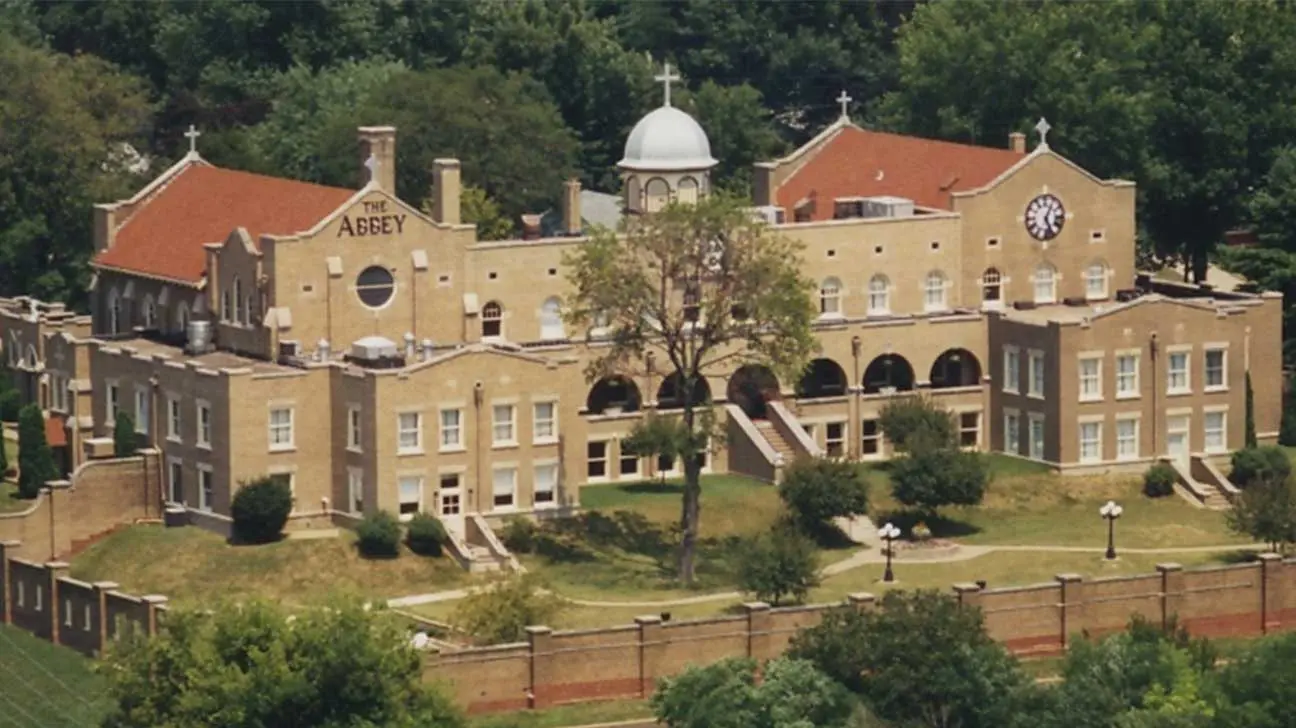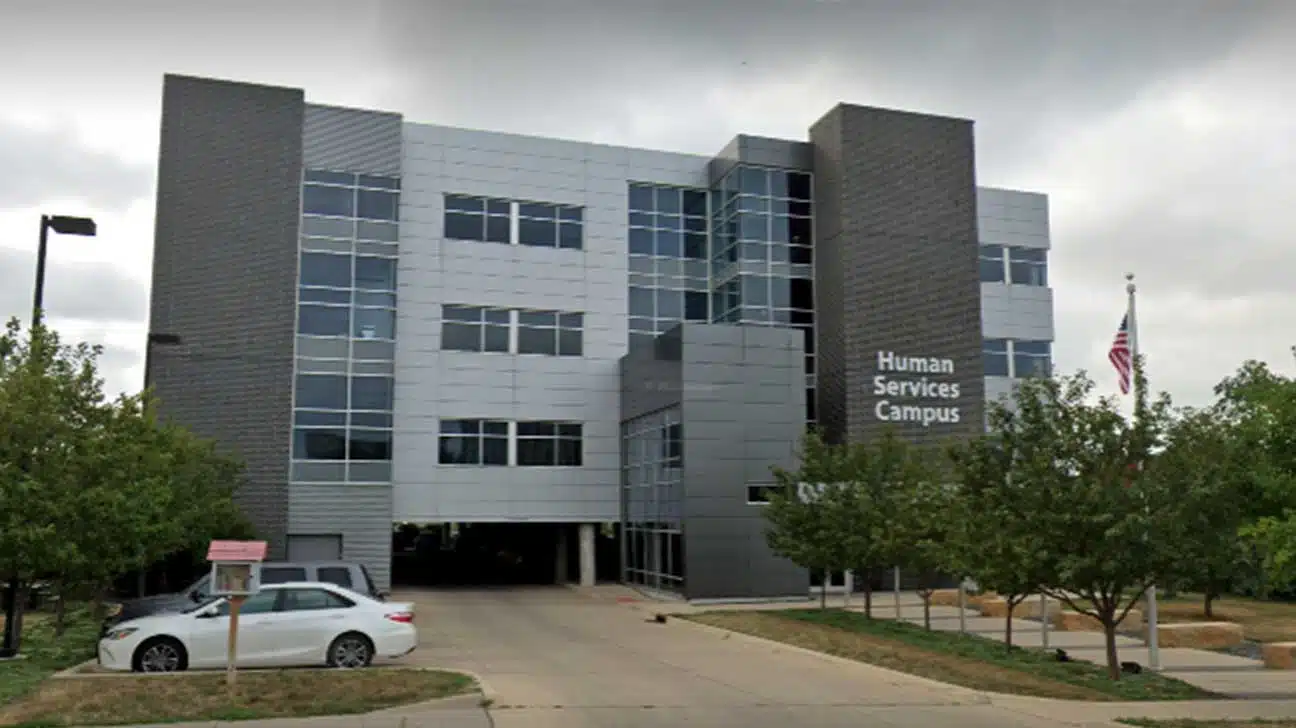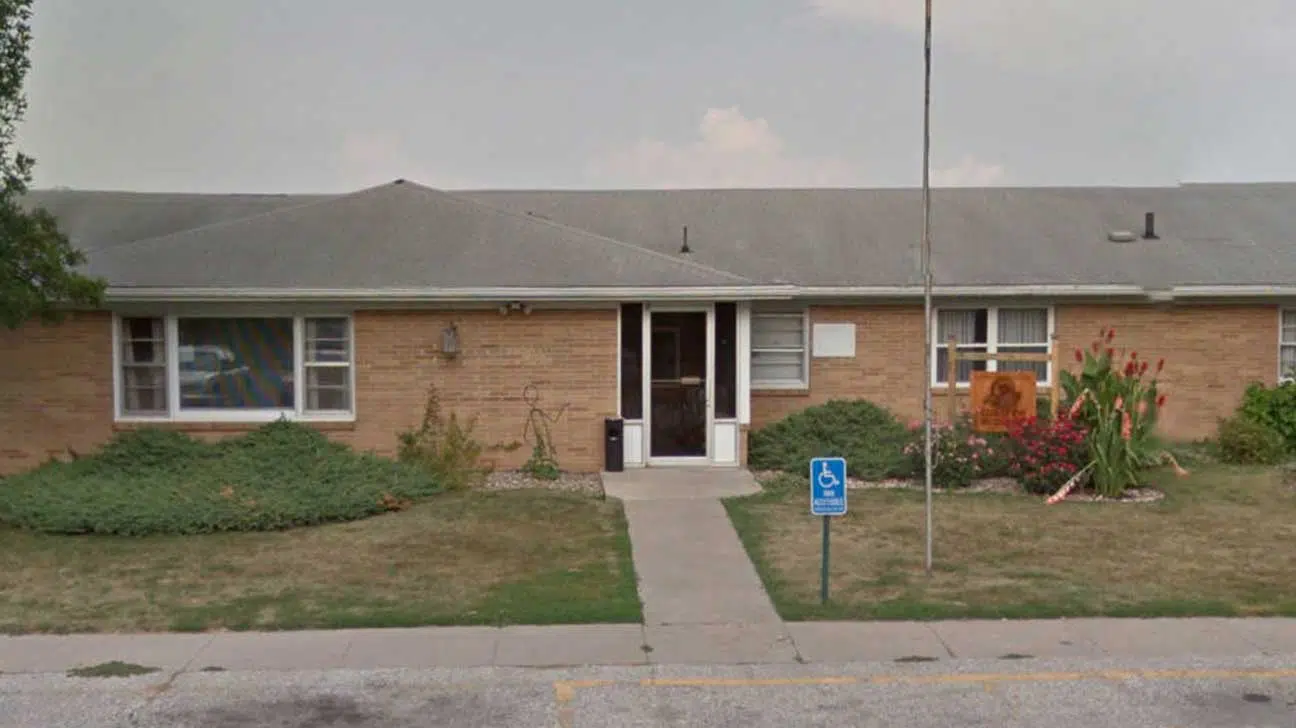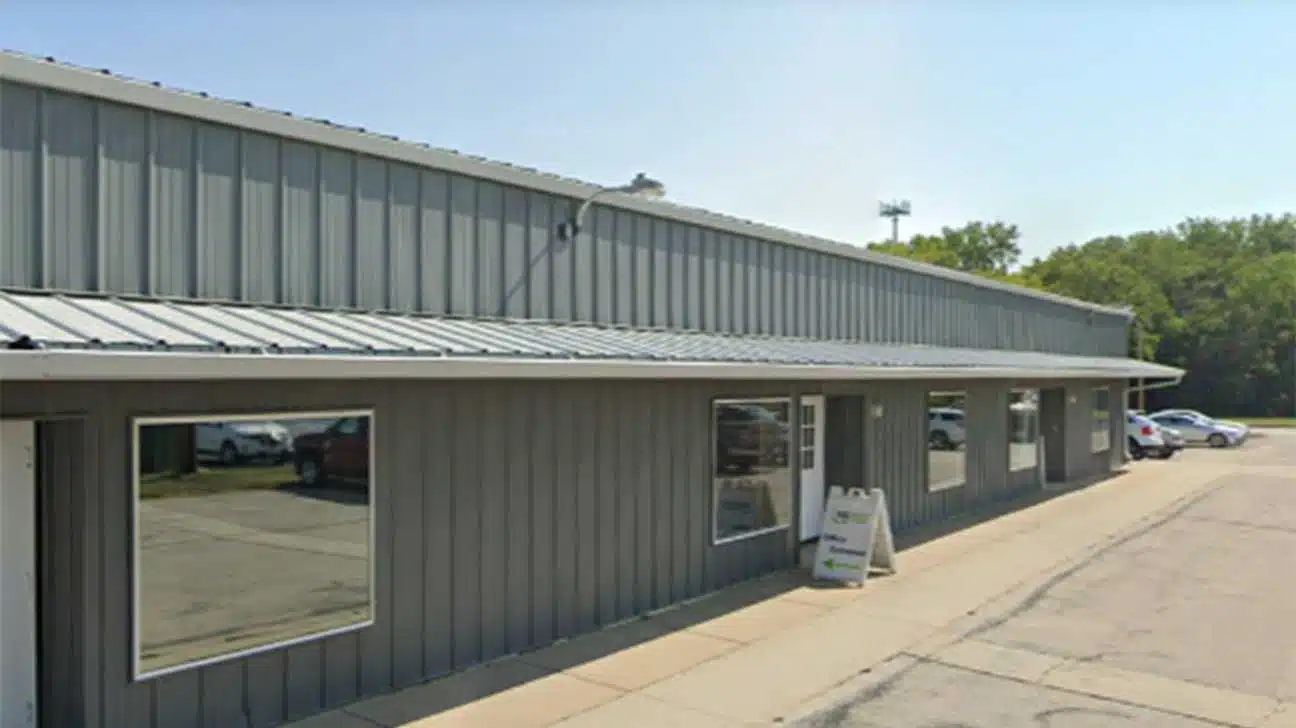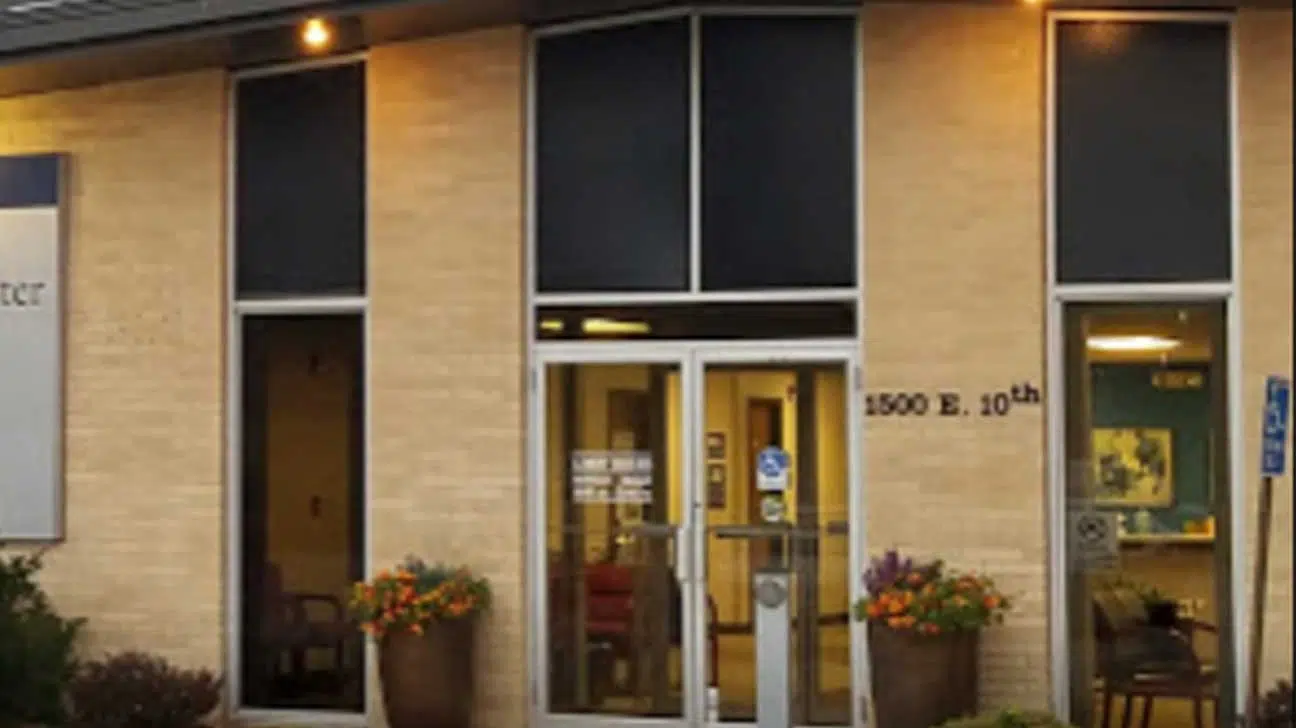
Specialized dual diagnosis treatment is offered at alcohol and drug rehab centers in Iowa. Their treatment programs focus on treating addiction and co-occurring disorders.
Untreated co-occurring mental disorders can increase the likelihood of relapse. By getting treatment for any underlying mental health conditions, you increase the chance of long-term sobriety.
List Of Dual Diagnosis Treatment Centers In Iowa
Below is a list of dual diagnosis rehab centers in Iowa. Each treatment center has been vetted for this list by considering its accreditation, memberships, certification, or other important marks.
1. The Abbey Center, Bettendorf, Iowa
The Abbey Center is an alcohol and drug addiction recovery center in Bettendorf, IA, that focuses on providing individualized dual diagnosis treatment.
The residential program specializes in the treatment of mental health issues and addiction.
Their dual diagnosis treatment services include:
- individual, family, and group therapy
- cognitive behavioral therapy (CBT)
- trauma-informed care
- 12-step support groups
- gender-specific treatment
- motivational interviewing (MI)
This drug and alcohol addiction recovery facility is backed by:
- Commission on Accreditation of Rehabilitation Facilities (CARF) accreditation
- positive client reviews
- evidence-based treatment methods
- 4.7-star rating on Google
Location and contact information:
1401 Central Ave.
Bettendorf, IA 52722
(563) 355-4707
2. Area Substance Abuse Council, Cedar Rapids, Iowa
Area Substance Abuse Council offers a range of treatment options that include dual diagnosis services and addiction treatment in Cedar Rapids, IA.
Their programs are available to adults, pregnant women, women with children, youth, and LGBTQ-identifying individuals.
Their addiction treatment services include:
- residential treatment
- outpatient treatment
- medication-assisted treatment (MAT)
- individual, group, and family therapy
This alcohol and drug rehab facility is backed by:
- 4.8 stars on Google reviews
- evidence-based treatment programs
- positive client testimonials
Location and contact information:
4050 Bowling St. SW
Cedar Rapids, IA 52404
(319) 862-1050
3. Clearview Recovery, Prairie City, Iowa
Clearview Recovery provides a gender-specific women’s and children’s addiction treatment program near Newton, IA. The program addresses co-occurring disorders.
Substance abuse treatment programs available include:
- 12-step groups
- family, individual, and group therapy
- parenting support
- holistic treatment options
Clearview Recovery is backed by:
- 4.6 stars on Google reviews
- evidence-based treatment methods
- positive client reviews
Location and contact information:
501 N. Sherman St.
Prairie City, IA 50228
(515) 994-3562
4. Community And Family Resources, Iowa City, Iowa
This substance abuse rehab facility in Iowa City, IA, provides dual diagnosis treatment through multiple programs. The treatment center accepts adult patients with co-occurring disorders.
Community and Family Resources provides:
- detoxification
- 24-hour residential treatment
- outpatient programs
- continuing care
- halfway houses
- case management
This addiction recovery center is backed by:
- CARF accreditation
- evidence-based treatment methods
- positive client testimonials
Location and contact information:
430 Southgate Ave.
Iowa City, IA 52240
(319) 351-4357
5. Zion Integrated Behavioral Health Services, Atlantic, Iowa
Zion Integrated Behavioral Health Services provides treatment for addiction and mental disorders. They have multiple programs available for adults.
Substance abuse treatment options near Des Moines, IA, include:
- outpatient treatment
- continuing care
- intensive outpatient programs (IOP)
- gender-specific residential treatment
- halfway homes
Zion Integrated Behavioral Health Services is supported by:
- evidence-based treatment methods
- CARF accreditation
- positive client testimonials
Location and contact information:
2307 Olive St.
Atlantic, IA 50022
(712) 243-5091
Types Of Treatment For Co-Occurring Disorders At Rehab Centers In Iowa
Treatment for co-occurring disorders in Iowa includes drug and alcohol treatment along with mental health treatment to meet each client’s individual needs.
Treatment services will revolve around therapeutic approaches, including:
- CBT
- group therapy
- DBT
- family counseling
- contingency management
- MI
Treatment that addresses substance use may include the therapies above as well as the following:
- detox
- aftercare
- partial hospitalization program (PHP)
- transitional living options
- inpatient drug rehab programs
- relapse prevention
- outpatient services
- drug-specific treatment such as an opioid addiction
- treatment program
How Common Is Dual Diagnosis In Iowa?
According to the National Alliance for Mental Illness (NAMI), people who have a mental health disorder are twice as likely to develop a substance use disorder as those without a mental illness.
In Iowa, about 29% of adults experienced feelings of depression or anxiety early in 2023, which is a little less than the national average.
Iowa also has fewer drug overdose deaths. They are about 15 people per 100,000 Iowa residents, versus the national figure of 32 people per 100,000 residents.
How To Choose A Dual Diagnosis Program In Iowa
It can be overwhelming to choose a recovery center that treats addiction and co-occurring disorders.
Keep the following criteria in mind, when searching for treatment.
Specialized Dual Diagnosis Treatment
Dual diagnosis treatment is available in many different programs such as inpatient treatment, residential programs, and outpatient treatment.
Choosing a treatment center with a specialized dual diagnosis program will ensure you have treatment providers with the training necessary for successful treatment.
Use Of Behavioral Therapies
Behavioral therapy is an important aspect of addiction treatment programs. It is especially important when it comes to dual diagnosis treatment.
A dual diagnosis program should use one or more types of behavioral therapy.
Many co-occurring disorder programs utilize:
- CBT
- DBT
- MI
- trauma-based therapy
Iowa Dual Diagnosis Treatment FAQs
If you want to know more about dual diagnosis treatment programs in Iowa, read through the frequently asked questions below.
Can Dual Diagnosis Treatment Be Found At Any Addiction Treatment Facility In Iowa?
There are many Iowa addiction treatment centers, but not all of these facilities offer dual diagnosis treatment.
Be sure to verify that people with a dual diagnosis are treated at the recovery center you choose.
What Mental Disorders Can A Dual Diagnosis Program In Iowa Treat?
There are many mental conditions that can be diagnosed alongside addiction. Each treatment center may offer treatment for different mental disorders.
Many of the dual diagnosis drug and alcohol rehab programs in Iowa treat:
- schizophrenia
- bipolar disorder
- anxiety
- depression
- post-traumatic stress disorder (PTSD)
Can My Family Be Involved In My Dual Diagnosis Treatment In Iowa?
Most recovery centers that offer treatment for alcohol and drug abuse encourage the support and participation of a client’s family during their addiction treatment.
Your family can be involved in multiple parts of your program, such as family therapy and education programs. However, family participation is not required.
Will Medicaid Cover Dual Diagnosis Treatment In Iowa?
Yes, most likely it will. Iowa Medicaid for addiction treatment is funded by the federal and state government to help people with little or no income receive addiction and mental health treatment.
You might also find coverage for addiction treatment plans with private health insurance. Medicare may also offer chemical dependency treatment coverage as well.
Find Dual Diagnosis Treatment Today
If you or a loved one are battling co-occurring disorders, you can find healthcare for addiction and mental conditions. Call us today to learn more about your treatment options.
Updated on April 11, 2023
Addiction Resource aims to provide only the most current, accurate information in regards to addiction and addiction treatment, which means we only reference the most credible sources available.
These include peer-reviewed journals, government entities and academic institutions, and leaders in addiction healthcare and advocacy. Learn more about how we safeguard our content by viewing our editorial policy.
- FindTreatment.gov — Treatment Locator
https://findtreatment.gov/results - National Institute of Mental Health (NIMH)
https://www.nimh.nih.gov/health/topics/substance-use-and-mental-health - National Library of Medicine: MedlinePlus
https://medlineplus.gov/dualdiagnosis.html#:~:text=Someone%20with%20a%20dual%20diagnosis,you%20emotional%20and%20social%20support. - Substance Abuse and Mental Health Services Administration (SAMHSA)
https://www.samhsa.gov/find-help/disorders

